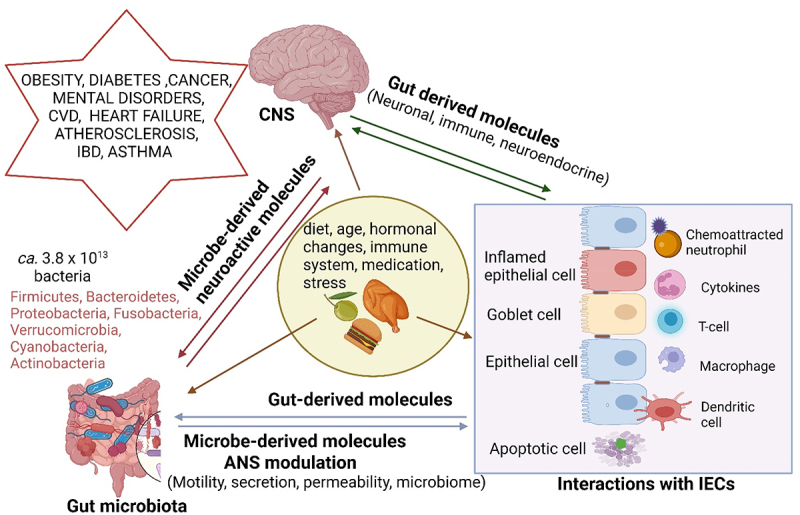Figure 1.

Gut microbiota, intestinal epithelial cells (IECs), the autonomic nervous system (ANS) and the brain (central nervous system, CNS) are in constant contact via bidirectional communication channels driven by gut- and microbe-derived molecules that have a direct or indirect effect on the formation of neuronal, immune, and neuroendocrine signals. These interactions regulate the composition of the gut microbiome, bowel movement, and the migration of molecules across the gut wall. Some microbe-derived molecules reach the brain via the vagus nerve or enter the systemic circulation system (bloodstream). Neuroactive molecules released from the brain affect the behavior of gut microbiota and their gene expressions. An imbalanced diet, obesity, diabetes, cancer, mental disorders, and microbial infections are examples of abnormalities that alter the composition of the gut microbiome. Metabolites produced by gut microbiota have also been implicated in some disease processes, such as cardiovascular disease (CVD). Created using Biorender.com (1 July 2024).
